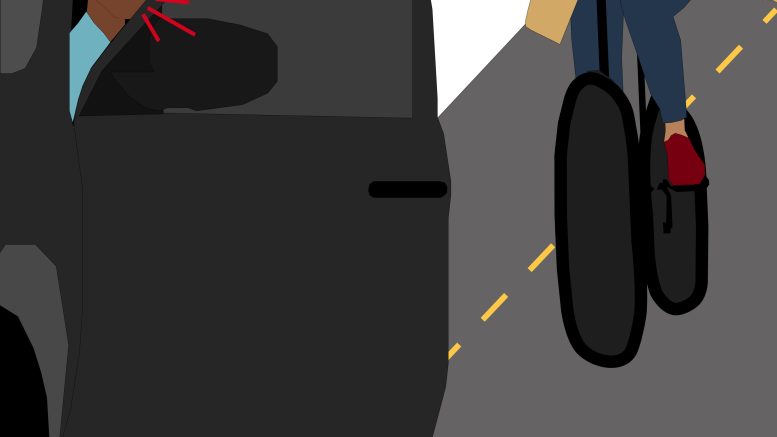Today, I am going to tell you a well-known secret that should not be a surprise. Despite all the false narratives mainstream media and social media can put on cyclists (such as cranky, entitled brats who are an annoyance to society), cyclists show greater interest than motorists in their community. Yes, scientific analysis backs this up.
Cycling magazine Momentum recently wrote an article on their website about a 2023 study in the Journal of Environmental Psychology. The study done in Germany confirmed what many knew — cyclists were more likely to be concerned about their local community than motorists. I find this to hold true in Canada as well. Momentum said the study looked at four variables: participation in politics, organizational participation, solidarity in neighbourhoods and helping neighbours. Researchers found that with other variables held equal (income level, gender, home ownership and education), being a cyclist predicted participation in each of the four variables, which are all related to the common good.
Momentum also noted that cyclists often have more opportunities to engage with people and neighbourhoods, which heightens their sense of awareness of what is happening in their communities and contributes to their sense of the common good.
From my experience, I can share why this study is highly accurate and how this should lead to further community engagement.
As a cyclist participating in the cycling community, there is a higher sense of community concern, strengthening empathy toward the problems plaguing our city, province and country. We understand the needs of what is necessary to lift people. As a cyclist, you see more of your neighbourhood and city. You see more than those who drive as their primary mode of transportation, like the impacts of many issues from systemic racism and sexism on our transportation system, to urban sprawl, poverty, environmental degradation and Indigenous reconciliation with our lands through our trails. You see all these challenges facing a city with a more precise context versus a motorist through our daily struggles.
It is not surprising from all these life experiences that cyclists are more likely to be active politically and volunteering in our community to make it better. Many are actively involved with various progressive politics, advocating and supporting policies boosting active transportation.
In 2022, a poll commissioned by CTV and the Winnipeg Free Press before the civic election showed the most support for increases in public and active transit came from supporters of the two major centre-left parties (including the cyclist demographic). Even those in the cycling community who may not support major progressive parties frequently lead on key political activities, including organizing and leading monthly Critical Mass rides, vocally wanting the loudest change in our car-centric transportation system.
Many cyclists are frequently engaged in volunteering, whether on the board of a bicycle advocacy group, community bike shop, food bank, arts group, environmental organization or hosting community radio shows. Dr. Syed Muhammad Zeeshan Hussain Almashhadi said it best, “volunteering is the ultimate exercise in democracy. You vote in elections once a year, but when you volunteer, you vote every day about the kind of community you want to live in. We all want this for the communities we live in.”
However, many drivers can be considerate, and some cyclists are not. I know some days I am not perfect. But, in general, the study Momentum discussed is correct in suggesting that cyclists view the world differently versus motorists and are more likely to be committed to the common good. Those life experiences on two wheels versus being behind the wheel of an automobile can give people more appreciation for the world, the simpler things in life and why it’s worth fighting for the common good in these dark times.
Adam Johnston hosts Not Necessarily The Automobile on Thursdays at 11:30 a.m. on UMFM 101.5. He can be reached at [email protected].



